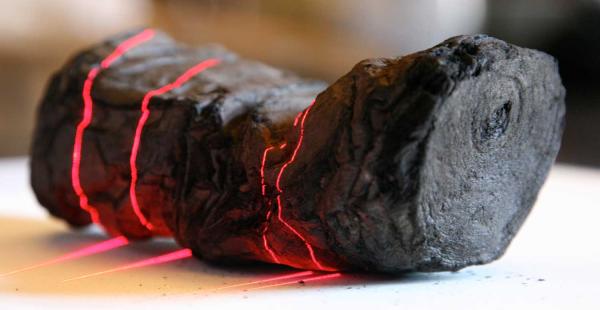
University of Kentucky

University of Kentucky
Since 2019, NEH has supported work by computer scientist Brent Seales and a team of researchers at the University of Kentucky in efforts to “digitally unwrap” ancient papyri from the Herculaneum library that were carbonized by the eruption of Mount Vesuvius in 79 A.D.
These fragile coal-like scrolls have been completely unreadable for more than two centuries, but NEH funding has helped researchers refine computerized techniques to digitally unroll X-rayed layers of the compacted papyri to try to discern and decipher their carbon-based ink writings.
The 1,800 carbonized papyrus scrolls that were discovered in the 18th century in Herculaneum represent the only library from the classical world that has survived in its entirety, and contain significant philosophical and literary texts from ancient Greek and Roman scholars.
The investments NEH made in the pioneering artificial intelligence (AI) technologies used in the Herculaneum scrolls project yielded a number of major discoveries in 2023 and 2024, beginning with the identification of the first word from the charred scrolls—the word porphyras, meaning “purple” in ancient Greek. Shortly thereafter, a trio of student researchers successfully decoded the first full passage of text from the scrolls, making the Herculaneum papyri readable for the first time in nearly two millennia. Learn about these breakthroughs and the Vesuvius Challenge that helped accelerate discovery of the lost contents of the Herculaneum scrolls.
Read more about NEH-supported work to scan and read the charred Herculaneum scrolls at NEH’s Humanities magazine and Smithsonian magazine.
NEH is also supporting production of a forthcoming documentary—tentatively titled “Herculaneum: Reading the Invisible”—that chronicles the work of the University of Kentucky’s Digital Restoration Initiative team as they attempt to digitally preserve and decipher the 2,000-year-old Herculaneum papyri.